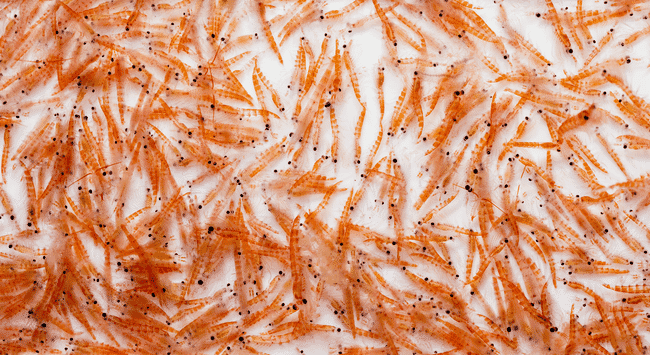
However, there is growing concern that krill fisheries might be damaging precious marine ecosystems
The trial, the results of which have been published in the journal Fishes, was designed to evaluate various aquafeed palatants, as part of the F3 Krill Replacement Challenge.
“Our findings demonstrate that the addition of krill meal to the diet provides no added benefit to growth or survival when animal proteins like poultry meal are present,” said the study’s lead author Rick Barrows, founder of Aquatic Feed Technologies. “Krill increased feed consumption and may provide a nutrient that is also found in poultry meal.”
To determine the effects of krill meal on Atlantic salmon growth, the researchers tested various inclusion levels (0 percent, 2.5 percent, 5 percent) during a 90-day feeding trial on post-smolts, using both plant- and animal-based feeds that were fishmeal and fish oil free. They found that krill meal had no effect on growth or feed intake in the animal-based diets, indicating that krill is not beneficial when poultry meal is present in the diet.
“These findings raise important questions about the necessity of the Antarctic krill fishery to supply the aquafeed sector given the outsized role these tiny crustaceans play in supporting one of the most fragile ecosystems on our planet,” said University of Arizona Professor Kevin Fitzsimmons, chair of the F3 – Future of Fish Feed. “The results from our latest contest may soon reveal that there are many great krill replacements already in the marketplace.”
In a follow-up study on quality and taste attributes, also published in Fishes, the researchers found that complete replacement of fishmeal and fish oil in Atlantic salmon feeds had limited impact on the quality and palatability attributes of fillets for consumers.
As the industrial krill fishery in the Antarctic steadily increases production, scientific research has shown sharp declines in krill populations as a result of regional overfishing and climate-induced ecosystem changes. In addition, a wide variety of marine life, from whales and seabirds to commercially important fish and squid depends upon these tiny shrimp-like crustaceans at the base of the marine food chain as a primary food source. Krill also remove carbon dioxide from the atmosphere.
The Atlantic salmon feeding trial was conducted at Vitapro’s Centro Experimental Acuícola in Chile.




